Efforts to accompany and support
Located in an area far from the center of Hanoi, Mr. Nguyen Danh Cuong - working at the Department of Culture - Society under the People's Committee of Yen Bai commune shared that after merging and perfecting the new commune-level apparatus, the department consists of 9 employees.
Previously the Deputy Head of the Department of Education and Training of Ba Vi district, Mr. Cuong is the only person with a background and expertise in education . This poses challenges that require solidarity and unanimity of the newly established collective.
Accordingly, the Department of Culture and Society will advise the People's Committee of the commune on plans, programs and policies for educational development in the area; manage and supervise the activities of 12 preschool, primary and secondary schools in the commune.
Coordinate with schools, parents and the community to improve the quality of education; conduct statistics and reports on the local education situation...
“In the new merger phase, we have to actively guide other members on expertise related to the fields of education and internal affairs so that everyone can gradually get used to the work. We will follow the instructions before July 1 for tasks such as universal education, primary school enrollment, etc. In the coming time, the department will overcome difficulties and continue to closely follow the instructions from the Commune People's Committee to complete the task well,” said Mr. Cuong.
Having worked in the education sector for more than 30 years, Associate Professor Le Thi Ha - Principal of Yen Thuong Primary School (Phu Dong, Hanoi ) expressed that the important thing now for smooth operations is that the decentralization and delegation of authority of the People's Committee at the commune level needs to be clear so that schools can easily carry out their tasks. Accordingly, schools will know which content to contact which department for specific instructions.
Associate Professor Le Thi Ha also said that in education work, commune-level cadres need to have comprehensive knowledge of education management, master new education regulations and policies; and at the same time have the ability to coordinate with relevant agencies and units to implement educational activities in the area of responsibility. Changes in organizational structure require cadres to quickly adapt to the working environment, coordination methods and new work processing procedures.
Thanh Sen Ward (Ha Tinh) was established on the basis of merging 8 wards: Bac Ha, Thach Quy, Tan Giang, Thach Hung, Nam Ha, Tran Phu, Ha Huy Tap, Van Yen and a part of the area and population of Dai Nai Ward of the old Ha Tinh City. Immediately after its establishment, the ward government held a meeting and assigned officials to be in charge of various fields, including education.
According to Ms. Tran Thi Thuy Nga - Vice Chairman of Thanh Sen Ward People's Committee (former Head of the Department of Education and Training of Ha Tinh City), the ward is managing 39 educational facilities from kindergarten to junior high school. The education department consists of 5 officers who are specialists from the old Department of Education of the city, this is a great advantage to help the ward carry out the work effectively, without encountering significant difficulties.
Most of the new administrative units of the ward used to belong to the old Ha Tinh city - where many advanced educational models have been implemented such as: Smart classrooms, high-quality classrooms, developing reading culture in schools, building an educational ecosystem... In the new term, Thanh Sen ward continues to identify the key goal of promoting digital transformation and building smart schools. The locality is studying a roadmap to develop the "Smart Education Ward" model in the coming time.
“It is expected that at the end of July, we will hold a meeting with the principals of the schools to complete the documents and procedures for handing over from the city to the ward. The ward is reviewing the physical conditions and conducting field surveys at the schools, from which to build a specific and methodical plan to prepare for the new school year,” informed Vice Chairwoman of Thanh Sen Ward People's Committee Tran Thi Thuy Nga.
However, according to Ms. Nga, there are still some problems in the implementation process. Specifically, the current guidance documents of the Education sector are not consistent with the Law on Organization of Local Government, creating some legal gaps.
For example, under the old regulations, principals who have worked continuously for 10 years at a school must be transferred. Previously, the local authorities were responsible for balancing and adjusting, but under the new guidelines, the process is handled by the Department of Education and Training. This makes it difficult for wards and communes to implement and wait for more specific instructions to ensure compliance with legal regulations and local practices.
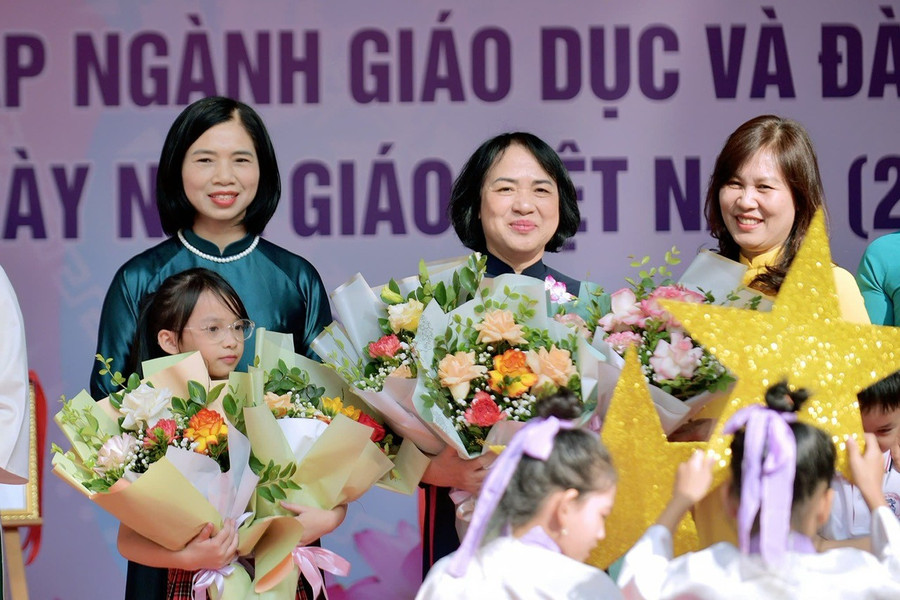
Leveraging available resources
After the reorganization, Ho Chi Minh City has 168 commune-level administrative units, including 113 wards, 54 communes and 1 special zone; of which 112 wards, 50 communes, 1 special zone were formed after the reorganization and 5 commune-level administrative units were not reorganized. In the organization of wards and communes, there is a Department of Culture and Society with each department in charge of a separate field.
Mr. Duong Van Dan - Vice Chairman of the People's Committee of Chanh Hung Ward (HCMC) said that the ward has a Department of Culture - Society including specialized departments such as: Culture, Health, Education... advising the department to carry out tasks, including education work. Currently, the department in charge of education work of the ward has 6 officers, these personnel are from the Department of Education and Training of District 8 (old) and those who used to work in the wards before the merger.
However, the wards have a Department of Culture and Society with a specialized department on education to advise the department and the ward People's Committee to carry out leadership work. If there was a Department of Education and Training before, the ward/commune was still in charge of universal education and illiteracy eradication.
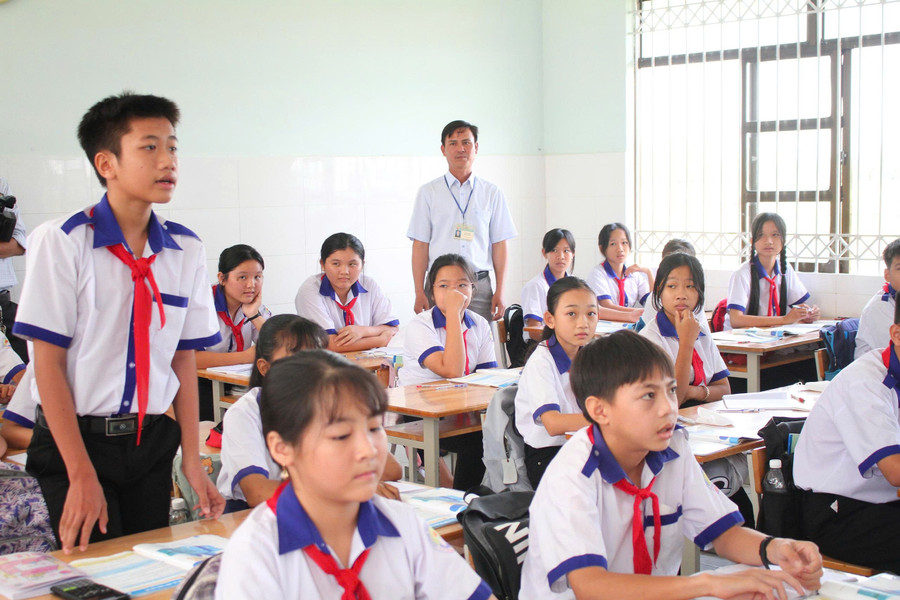
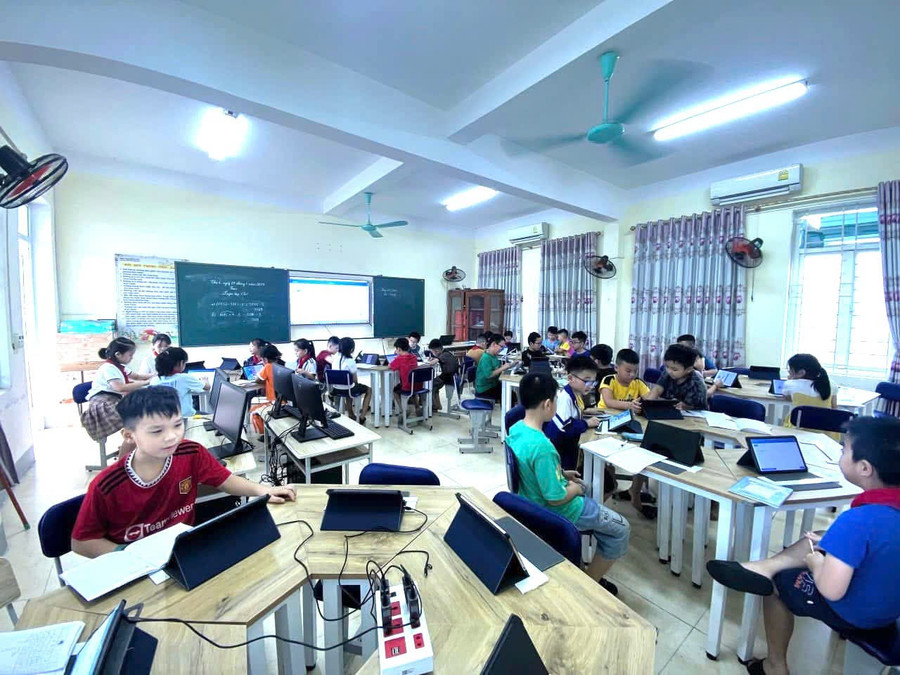
The establishment of a two-level local government will reduce the number of focal points. Wards that want to operate better must promote the role of professional councils and steering committees for universal education and literacy to gather more resources. Currently, human resources in wards/communes are limited, so all professional activities from the Department of Education and Training and schools must be proactive and active to carry out this task.
“The head of an educational institution must grasp the policies conveyed from the superiors to himself in order to concretize and advise the locality on implementation. At first, schools may not be familiar with the new government model, but step by step they will get used to it and operate more smoothly and effectively,” said Mr. Duong Van Dan - Vice Chairman of the People's Committee of Chanh Hung Ward (HCMC).
Faced with the new requirements, the Dong Thap Province Department of Education determined that a more comprehensive and flexible approach is needed in the management and implementation of tasks. According to Mr. Nguyen Nhu Hao - Principal of Phong Thanh Tay Primary School (Phong Thanh Tay, Ca Mau), this is convenient because management at the commune level is appropriate.
The commune will closely monitor the school's activities. Schools will also reduce the pressure of having to participate in many competitions and performances during the school year, and instead focus on professional work.
However, the assignment of management to the commune level, the responsibility of the school in educational activities, improving the quality of teaching and learning... will be greater, because the school receives less support and sharing of expertise from the commune level, compared to before when it was under the management of the Department of Education and Training.
Ms. Pham Thi Quyen, Principal of Vien An Commune Primary School 2 (An Vien, Ca Mau) expressed: "The school has 3 separate locations, the facilities are deteriorating, the teaching staff is lacking, it is difficult to teach 2 sessions/day. Hopefully, after the merger of the province and the implementation of 2-level government, the advantages of this model will help the school receive timely investment to enter the new school year with a new spirit and ensure the quality of teaching and learning."
Source: https://giaoducthoidai.vn/can-bo-cap-xa-lam-cong-tac-giao-duc-san-sang-dap-ung-yeu-cau-nhiem-vu-moi-post740168.html







![[Photo] Closing of the 14th Conference of the 13th Party Central Committee](https://vphoto.vietnam.vn/thumb/1200x675/vietnam/resource/IMAGE/2025/11/06/1762404919012_a1-bnd-5975-5183-jpg.webp)
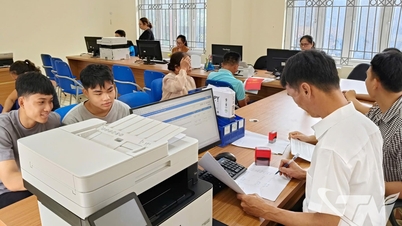



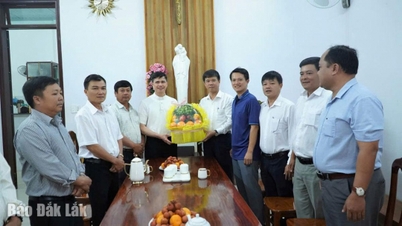




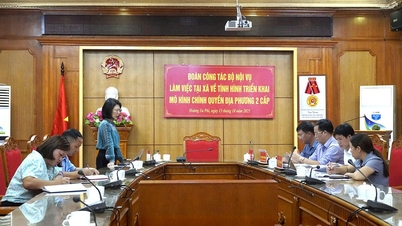









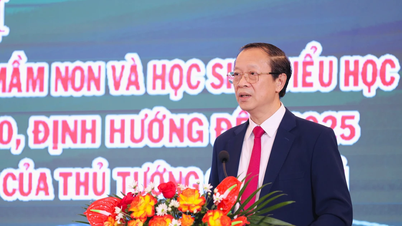




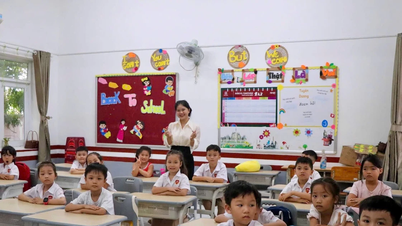
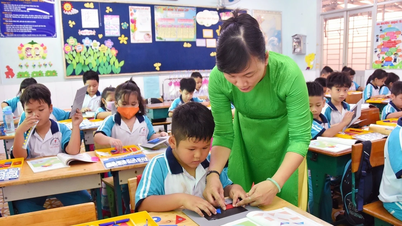
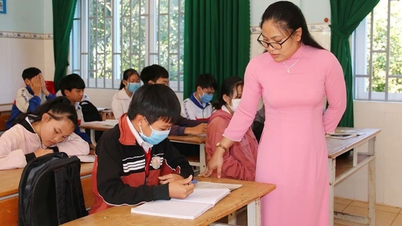
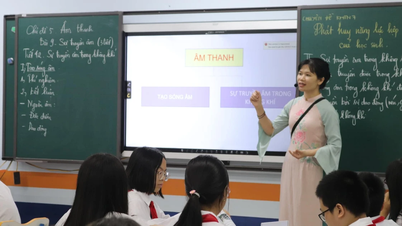



























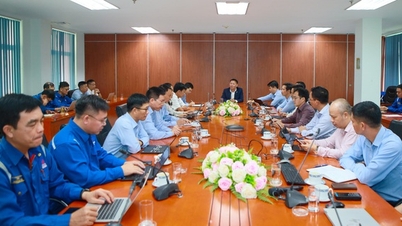



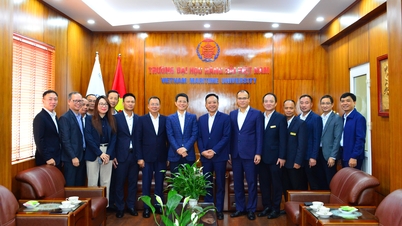







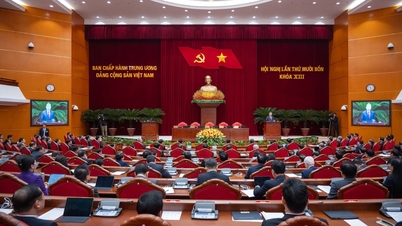




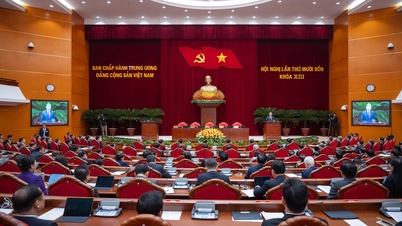
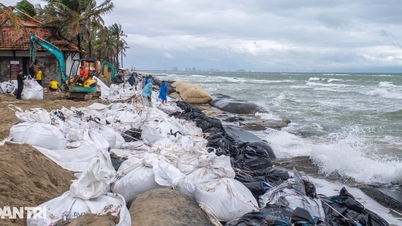
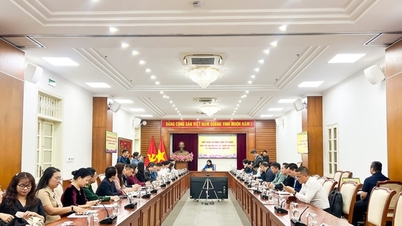




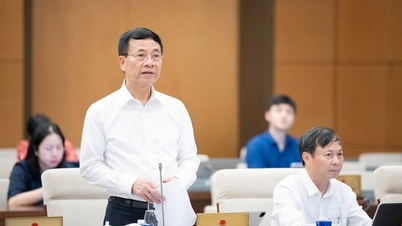









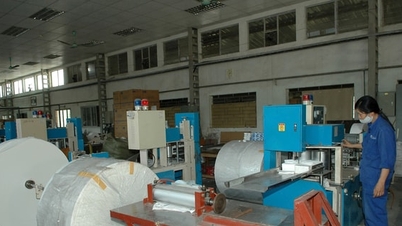

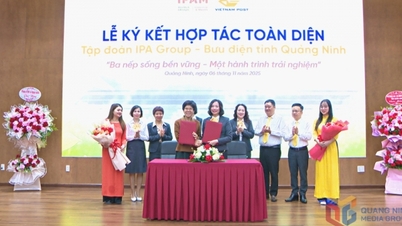












Comment (0)